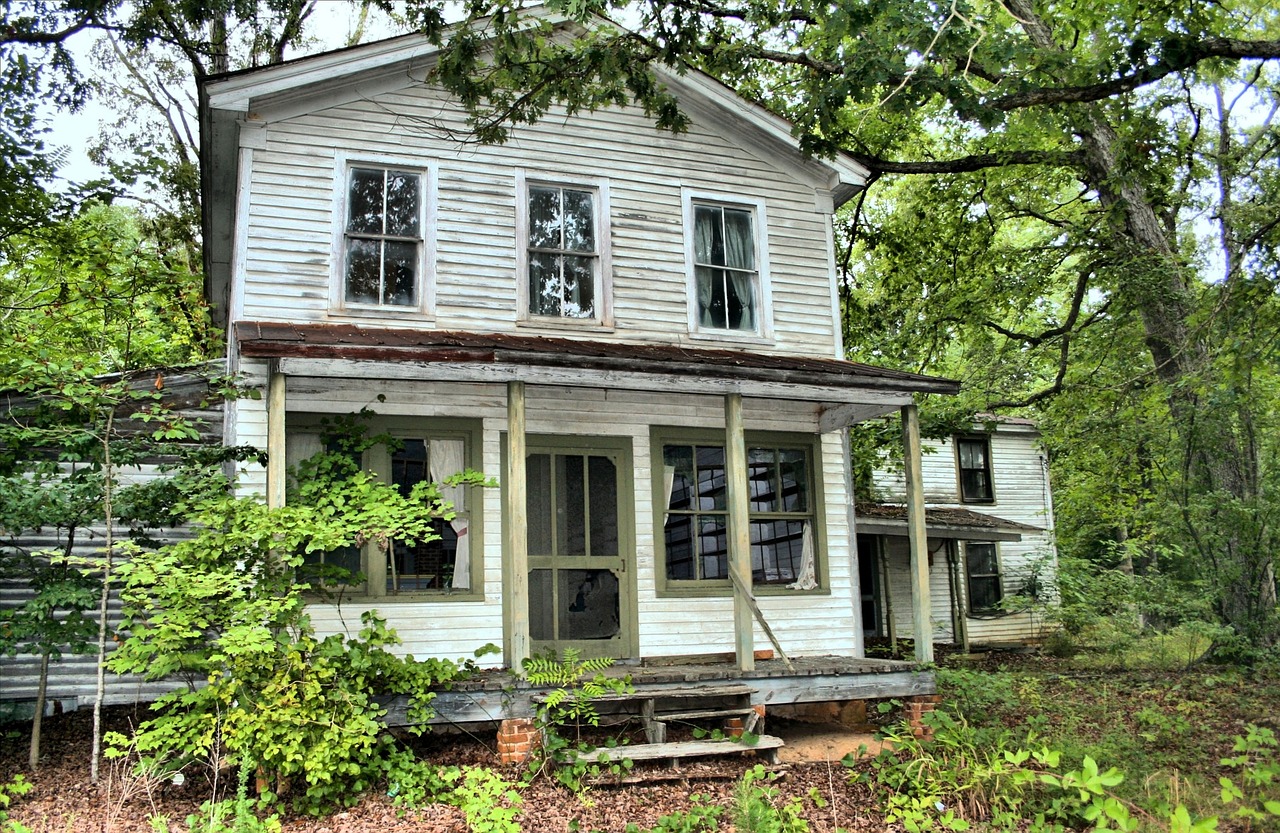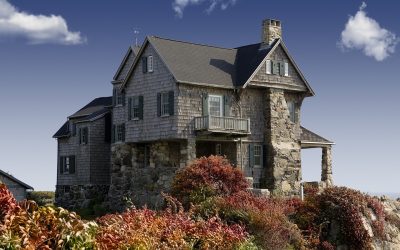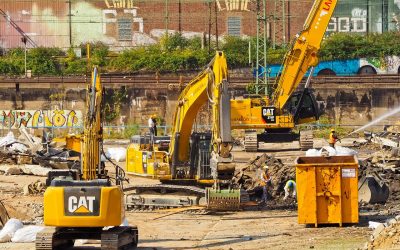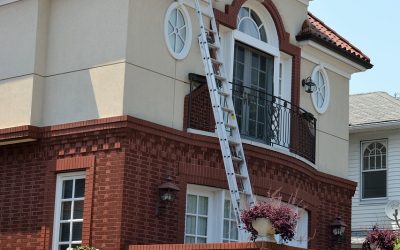Owning real estate is one of the most significant investments one can make, and like any valuable asset, it requires diligent care and maintenance to preserve its value. This is where property preservation comes into play. Property preservation involves a set of practices aimed at maintaining and protecting properties, ensuring they remain in good condition regardless of external factors such as weather, time, or neglect. For property owners in New England, where the weather can be both beautiful and brutal, property preservation is not just an option—it’s a necessity.
In this blog post, we’ll explore the critical role of property preservation in maintaining the value and safety of your real estate investments. We’ll discuss the unique seasonal challenges in New England, offer practical tips and best practices for preserving your property, and highlight how Northern Point Consulting’s services can help you prevent costly repairs and protect your investment year-round.
The Role of Property Preservation
Property preservation is essential for safeguarding your investment from the wear and tear that comes with time, weather, and occasional neglect. This process involves a comprehensive approach to maintaining the physical and aesthetic condition of your property, from ensuring the structural integrity of buildings to keeping the landscaping in pristine condition.
At its core, property preservation is about proactive care. It’s about identifying potential issues before they become significant problems, thus preventing expensive repairs and maintaining the property’s market value. For example, regular inspections can help detect early signs of water damage, mold, or structural issues, allowing for timely repairs that save money and maintain the property’s integrity. Moreover, property preservation isn’t just about the present; it’s about the future resale value of your property. A well-maintained property is more attractive to buyers and tenants, and it can command a higher price on the market.
Seasonal Challenges in New England
New England is known for its picturesque landscapes and charming architecture, but it’s also known for its harsh and unpredictable weather. Each season brings its own set of challenges that can affect the condition of your property, making regular maintenance and preservation efforts even more critical.
Winter
Winter in New England can be particularly tough on properties. The region is no stranger to heavy snowfall, ice storms, and freezing temperatures, all of which can take a toll on both the exterior and interior of your property. Snow and ice can lead to roof damage, with the weight of accumulated snow potentially causing structural issues. Ice dams, a common problem in winter, can prevent melting snow from draining properly, leading to water seeping into your roof and causing leaks.
Freezing temperatures can also result in burst pipes, especially if a property is left unoccupied without proper winterization. A burst pipe can cause significant water damage, leading to costly repairs and even mold growth if not addressed quickly.
Spring
Spring in New England often brings heavy rains and the risk of flooding, especially after the snow begins to melt. Properties in low-lying areas or near water sources are particularly vulnerable to flooding, which can cause extensive water damage to basements, foundations, and landscaping.
During this season, it’s also important to inspect your property for any damage that might have occurred during the winter. For example, check your roof for any missing or damaged shingles, inspect your gutters for debris, and ensure your foundation hasn’t suffered any cracks due to the freezing and thawing cycle.
Summer
Summer might seem like a time to relax, but it’s also a critical period for property maintenance. The warm, humid weather can promote mold growth, especially in areas with poor ventilation. Moreover, summer is a time when pests like termites, ants, and rodents are most active, potentially causing damage to wooden structures and other parts of your property.
Landscaping is another crucial aspect of summer property preservation. Overgrown trees and shrubs can cause damage to your property’s exterior, block sunlight, and even interfere with the foundation if roots grow too close to the structure. Additionally, it’s important to ensure that your air conditioning system is functioning properly, as a breakdown during the hottest months can be both uncomfortable and costly to fix.
Fall
Fall is the time to prepare your property for the upcoming winter. This season involves a lot of preventive maintenance, such as cleaning gutters to prevent blockages that could lead to ice dams and water damage in the winter. You should also inspect and seal windows and doors to keep the cold air out and the warm air in, reducing your heating costs and preventing pipes from freezing.
It’s also a good idea to have your heating system inspected and serviced before the cold weather sets in. Ensuring that your furnace or boiler is in good working condition can prevent unexpected breakdowns during the winter months.
Practical Tips and Best Practices for Property Preservation
Maintaining your property throughout the year requires a proactive approach. Here are some practical tips and best practices to help you preserve your property through every season:
1. Conduct Regular Inspections
Regular inspections are key to identifying potential issues before they become major problems. Inspect your property at least once each season to check for signs of damage, wear, or other concerns. Pay particular attention to the roof, foundation, windows, doors, and plumbing.
2. Keep Up with Routine Maintenance
Routine maintenance, such as cleaning gutters, trimming trees, and servicing heating and cooling systems, should be part of your regular property care schedule. This helps prevent minor issues from escalating and ensures that your property remains in good condition.
3. Secure Vacant Properties
If your property is going to be vacant for an extended period, take steps to secure it. This might include winterizing pipes, installing security systems, and ensuring that the property is locked and monitored. Vacant properties are particularly vulnerable to damage, so it’s crucial to maintain them even when they are not in use.
4. Stay Compliant with Local Regulations
Property owners must comply with local regulations, especially regarding property maintenance and safety. Failure to do so can result in fines or other penalties. Make sure you are familiar with the regulations in your area and take steps to ensure your property meets all requirements.
How Northern Point Consulting Can Help
At Northern Point Consulting, we understand the unique challenges that come with owning property in New England. Our property preservation services are designed to help you maintain and protect your investment, no matter the season.
We offer comprehensive property preservation services, including routine inspections, maintenance, and repairs. Our team is experienced in managing the specific challenges posed by New England’s climate, and we work diligently to ensure that your property remains in excellent condition year-round.
By partnering with Northern Point Consulting, you can rest assured that your property is in good hands. We take a proactive approach to property preservation, helping you avoid costly repairs and maintain the value of your investment. Whether you need assistance with seasonal maintenance or long-term property care, we’re here to help.
Conclusion
Property preservation is an essential aspect of protecting your real estate investment, especially in a region like New England where the weather can be unpredictable and harsh. By taking a proactive approach to maintenance and working with experienced professionals like Northern Point Consulting, you can ensure that your property remains in excellent condition throughout the year. Don’t leave your investment to chance—take the necessary steps to preserve your property today, and enjoy the peace of mind that comes with knowing your investment is secure.





0 Comments